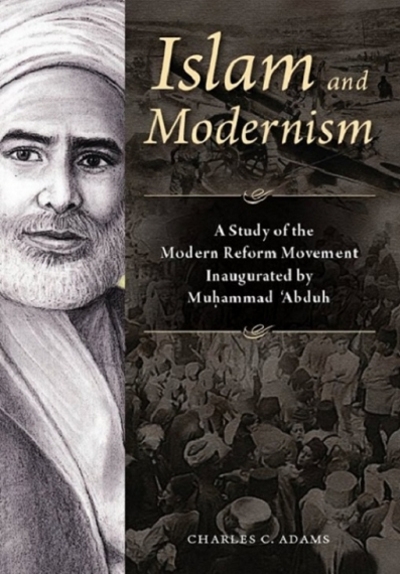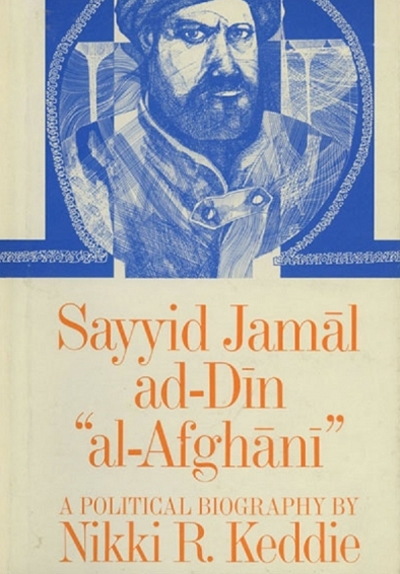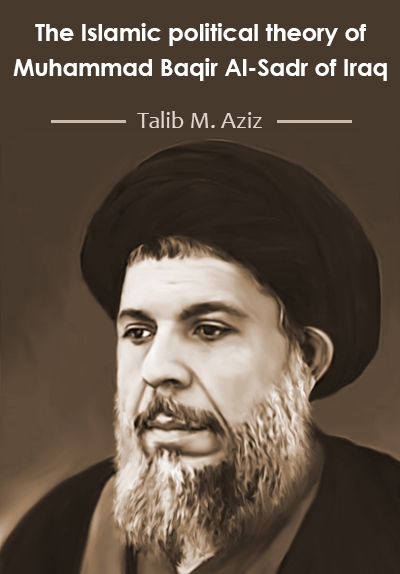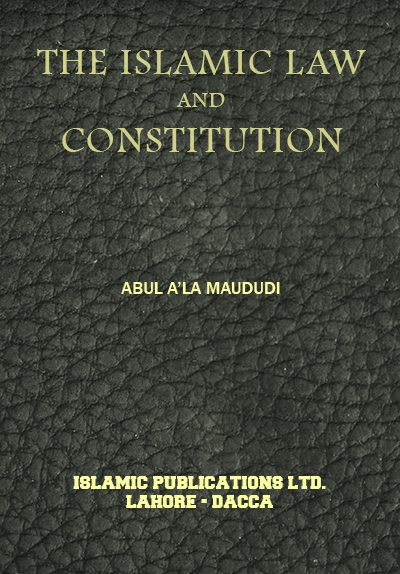The Reformers of Egypt: A Critique of Al-Afghani, Abduh, and Ridha
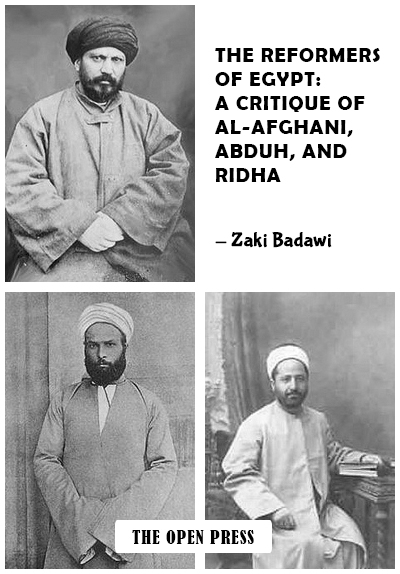
Author(s): Zaki Badawi
Publisher: The Open Press
Published on: Dhu al-Hijjah, 1395 1976-01
ISBN: 0-905081-02-1
No. of Pages: 95
Introduction
by Zaki Badawi
Modern Muslim thought emerged as a reaction to the impact of the west upon Muslim society. The west forced its way into the Dar AI-Islam, interfering in its affairs and reshaping its destiny. The initial reaction of the Muslims consisted of fortifying themselves with western weaponry. It soon, however, became clear that a modern army presupposed a modern society. The age of the savage fighter descending upon the civilized world to ravage and plunder was over. Military power became one of the dimensions of the degree of modernity. The influence of the west stemmed from the example of the victor whose culture and system of values carry the prestige of the overlord. But even more important than the western example was modernity. The accumulation of knowledge has become institutionalized. Research laboratories and universities are driven by an unsatiated curiosity to discover and invent. It no longer responds solely to human needs. It invents them. But modernity having grown in the western environment has been stamped with its own characteristic colour. There was naturally confusion in the minds of the Muslims as to what constituted progress and what was specifically western. The distinction between the west and modernity, and consequently westernization and modernization, became blurred. The westernizers took it for granted that to be modern the Muslim community must be western. The way to progress was assumed to be one way - the western way.
As the confrontation between the west and the Muslim world was one between enemies of long historical standing, and as the Muslims faced modernity not gradually and piecemeal but in a highly developed form, their reaction was somewhat uncertain. Even more unsettling for Muslims was the continuous development arising from modernity allowing for little time to adjust and react. The experience of the Muslims in relation to Hellenism was hardly helpful in solving the new crisis. The problem caused by the impact of Hellenistic thought arose during a period of strength and independence. It confronted the Muslims with a static set of principles to incorporate, and it allowed the Muslims to accept or reject them. All these aspects were absent in its confrontation with modernity. Muslim society of the 12 - 13th (eighteenth and nineteenth) centuries was weak and decadent.
More importantly, it was not allowed to ignore such a powerful force (modernity) which impinged on the physical as well as on the intellectual and social environment of man. Adjustment to modernity thus took sometimes the form of accepting or adopting western solutions before formulating specifically Muslim solutions stemming from Muslim culture and taking into account the Muslim system of values. It was against the background of westernization that the reform school emerged. Its main aim was to provide solutions to allay Muslim conscience and permit Muslims to adopt and partake in western scientific development. It was in a sense a resistance to European cultural penetration, and in another it was a yielding to what was considered science and technology. The distinction between the two aspects was never completely clear and the reformers sometimes accepted western cultural values on the assumption that they constituted modernity. Yet it was this particular problem which aroused the strongest controversy in the Muslim world. Those who opposed change called every departure from the old tradition westernization, that is imitation of the hated enemy, the infidel west. Those who supported change called every aspect of it modernization, however irrelevant the particular innovation might be to the needs of man in the scientific and technological age. The problem arising from this controversy touched upon theology, ethics, law and education. And because of the encroachment of the west on the political setup of the Muslim society, the political issues became also involved.
Modernity grew out of the environment dominated by the nation-state, by ideas of liberalism, individuality and limitations of the power of the authorities. The Muslims were quick to notice that and, like their western contemporaries, to consider such institutions as parliament and all the trappings of western political systems as in themselves the necessary dimensions of an advanced society. The first Egyptian Muslim to perceive the importance of these institutions was Rifa'a Al-Tahtawi who regarded them as good, though not contained in the Shari'a. It is important to note that Tahtawi was hardly a supporter of democracy. His advocacy of the French institutions of parliament and constitution, etc. did not stem from any idea of limiting the powers of the executive. A generation later these, institutions were made by the reformists a part of the Islamic political system, and ever since some Muslim writers and apologists have come to equate Shura with parliament, and Bay'ah with election. Thus western institutions were internalized within the theoretical structure of the Islamic reform movement in Egypt.
Islamic reform was only one of many reactions that emanated from the Ummah in response to the challenge of European civilization. There were at least four other distinctive reactions ranging from extreme conservatism to extreme westernism. Perhaps it might help determine the place of the reform school if an outline of the other reactions is given:
1. The conservative reaction favours the status quo of the Muslims and abhors change in whatever form and under whatever banner. The upholders of this view are those scholars who accept the works of some authors (generally belonging to the 8 - 9th century A.H.) as the final and unquestionable authority on Islam. Any deviation from their stated opinion is regarded as 'a deviation from Islam itself. The Ummah, the conservatives declare, should not be drawn away from the true path by the false Christian civilization or the enticing arguments of those misguided Muslims who claim for themselves the right and ability to present other ideas about Islam. The door of ijtihad, they contend, is firmly closed because on the one hand no one is any more qualified for it and on the other there is no need for it. The authoritative books in use contain all the satisfactory answers to all the valid questions. Central to this outlook is the view that modern civilization is false and transient. It will go away in its own accord so why tamper with the eternal message of Islam for the sake of the unreal and ghost-like civilization. Thus, in the field of ideas and emotional commitment, they think and argue and feel as if the world around them had remained static since their chosen author had finally concluded the last paragraph of his work. In real life, however, they live and act like all of their contemporaries. Included in this category (the conservatives) are some - though not all - Sufi leaders whose doctrine rejects this world and advocates withdrawal from it into the eternal reality. To withdraw from the unpleasantness of this world rather than seek to change it is tantamount to accepting or at least tolerating it as it is, i.e. conserving it.
2. The westernizing reaction is on the other extreme. It is for the total acceptance of western culture along with the adoption of science and technology. This view is best expressed in the words of Taha Husain: "Let us adopt western civilization in its totality and all its aspects, the good with the bad and the.bitter with the sweet". Fundamental to this outlook is the conviction that "progress" rather than religion is what matters. Religion is, therefore, relegated to the limited sphere of relation between man the individual and his chosen deity. Thus Islam, in this view, is equated with all other religions and doctrines as one of manifold forms of belief systems which may exist but need not significantly influence the march to "civilization".
3. Close to this viewpoint but somewhat different from it is that of the Muslim secularists. They subscribe to the goal of the modernists viz that the legitimate aspiration of the Ummah is that of civilization and progress. They differ, however, in claiming that their view is based not on the intrinsic value of "civilization and progress" but on Islam itself. When the secularist Ali Abdul-Razik proclaimed that the Caliphate was a secular not a religious institution and that the political, judicial and economic activities of the Muslims should be guided by their worldly interests unfettered by religious consideration, he was applauded by every westernizer. But he went further and bestowed on his opinion the authority of Islam itself. He thus introduced an interpretation of Islamic history and doctrines at variance with the accepted view and proceeded to proclaim that everyone was wrong - presumably including the Companions - in believing that Islam aimed at further than the uplift or man's spiritual life and moral values. As for the mundane aspects of society, he stated, they were too trivial to be of concern to Allah's revelation. Neither the westernizer nor the secularists succeeded in gaining much ground within the ranks of the Ummah. Their ideas were rejected but their program was, however, implemented. The Muslim communities - with few exceptions - live at present under secular governments administering imported "civilized" systems of law and forming a part of a European-dominated economic system. The disparity between the ideal of the Ummah and its actual could not be more glaring or more agonising. To bridge this gap the revivalists came on the scene.
4. The revivalist or revolutionary reaction proclaims that the ills of the Ummah cannot be remedied except by reference back to Islam in its purity as represented by Al-Qur'an and the Prophetic Traditions. It might be argued that revivalism should not be categorised as a modern reaction to a contemporary challenge since Muslim history is punctuated by revivalist movements emerging as a result of internal factors rather than external threats. While not denying that the dynamic nature of Islam brings forth from time to time movements of revival to check the drift of the Ummah from the straight path, there is no doubting the fact that the modern revivalists focused most of their effort on exorcising the pernicious influence of,.modern civilization. The reader can test this claim by glancing at the works of some of the modern revivalists such as Hassan al-Banna of Egypt, Maududi of Pakistan, Muhammad Nassir of Indonesia and Burhanussin AI-Hilmi of Malaya. The revivalists aim at re-establishing Islam in its totality through persuasion, if possible, or force, if necessary. Hence the emphasis on the duty of jihad and the repeated allusions to the early days of Islam with all the sacrifices and struggles that preceded the final triumph. In contr·ast with the reformists, the westernizers and the secularists, the revivalists are a mass movement, confident in the Divine source of its belief and certain of the final victory of its Faith. Although the revivalists sought to stem the tide of westernization, and naturally incurred the hostility of the westernizer and the secularists, they have not in the process gained the confidence or the support of the conservatives. In fact the struggle between the conservatives and the revivalists was often more bitter and deadly than with any other group. The reason can be found in the fact that they both seek to control the masses.
In the circumstances of the Ummah divided as it is into nation-states, the political leadership in nearly all of them remains for the moment in the hands of westernizers of whatever variety. The revivalists are generally ignored as long as they are few and unsuccessful but once they assume the leadership of the masses, the secular authorities bring to bear upon them the might of the westernized state. The reformists, though they are as Ridha described them the party of the few, are of great significance in modern Muslim thought. They represent a form of synthesis of various trends within the Ummah and their influence is much greater than their number warrants.
The westernizer and secularists sometimes claim to be the natural heirs of the reformists while some revivalists such as Hassan AI-Banna was in certain respects a continuation of Ridha, the reformist. It must, however, be pointed out that these categories are points on a continuum stretching from extreme conservatism to extreme westernism. The place of a thinker on this continuum is determined by his views on a majority of the important issues. Few, if any, hold the same attitude on all issues and it is therefore possible for one and the same person to be conservative with regard to a particular question while being almost a westernizer in relation to another and still a reformist in connection with yet another question. This observation must be born in mind when assessing the views of the reformists in particular. By the nature of their stand they seem the least consistent as the middle course is the most elusive. In the following pages we will deal with the views of three major leaders of the Reform School in Egypt. Jamal AI-Din AI-Afghani, Muhammad 'Abduh and Rashid Ridha. The first was the Socrates of the movement. He wrote little but inspired a great deal. It is difficult to be certain with regard to the.early contributions of 'Abduh, what emanated from AI-Afghani and what was exclusively 'Abduh's. The relationship between 'Abduh and Ridha is even more complex especially when it is realised that Ridha sometimes read into 'Abduh's thought what was entirely his own.
Readings
1. H.G.S. Hodsson: "Modernity and the Islamic Heritage", Islamic Studies, Vol.I no.2, p.115
2. Modernization and Westernization are used as synonyms in many works. See for instance: I. Abu Lughd: Arab Rediscovery of Europe (Princeton 1963) p.3 ff.
3. Rifa'i Tahtawi, Takhlis AI-Ibriz ila Tarikh Baziz (Cairo n.d.) p.96
4. Leon Zolondek, AI Tahtawi and Political Freedom, Muslim World, Vol.LIV
5. Taha Husain, Mustaqbah Al-Thqafa fi Misre (Cairo 1939)
